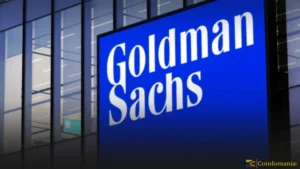House Passes HB 1664: Commerce Dept. to Lead Federal Blockchain Efforts

U.S. House Advances blockchain Legislation to Enhance Distributed Ledger Technology
Overview of the Legislation
On June 26, the U.S. House of Representatives approved HB 1664, a significant piece of legislation aimed at positioning the Secretary of Commerce as the primary advisor to the President on issues related to distributed ledger technology (DLT). This bill, introduced by Representative Kat Cammack and co-sponsored by Representative Darren Soto, was passed through a voice vote under expedited procedures.
Key Features of the blockchain Deployment Program
The newly proposed Deploying American Blockchains Act of 2025 is now set to be reviewed by the Senate. The legislation mandates the establishment of a blockchain Deployment Program within the Department of Commerce. This initiative will focus on creating policy recommendations, fostering interoperability standards, and investigating potential applications of on-chain systems across federal agencies.
Within six months of the bill’s enactment, the Secretary of Commerce is required to assemble advisory committees that include representatives from federal agencies, technology firms, academic institutions, cybersecurity experts, rural stakeholders, and the creator community. Their insights will help shape best practices in areas such as decentralized identity, key management, supply chain applications, and fraud prevention strategies. Additionally, the Commerce Department will work on developing standardized terminology to ensure a unified language across agencies and industries.
The legislation also instructs the Commerce Department to explore how existing federal systems can leverage tokenization, identify necessary security enhancements for critical infrastructure, and coordinate responses to threats posed by distributed ledger technologies. Importantly, the bill prohibits the department from mandating private companies to share data or comply with agency recommendations, thereby ensuring that industry participation remains voluntary. The blockchain Deployment Program is set to expire seven years post-enactment unless it is reauthorized.
Bipartisan Support and Future Prospects
Representative Cammack has positioned the bill as a vital step toward maintaining U.S. competitiveness in blockchain technology, while Representative Soto highlighted Florida’s growing blockchain ecosystem as a testament to the country’s potential in this field. Industry organizations, including the Digital Chamber of Commerce, have expressed their support for the legislation, viewing it as a pathway for effective collaboration between the public and private sectors.
The act also requires the Commerce Department to submit a public report to Congress two years after its enactment, detailing program activities, emerging risks, and any legislative changes needed to uphold U.S. leadership in distributed ledger technology. With the House’s approval secured, HB 1664 is now on its way to the Senate, where a companion bill sponsored by Senators Bernie Moreno, Lisa Blunt Rochester, and Tim Sheehy is awaiting scheduling. Lawmakers will deliberate on whether to advance or modify the House’s version before it can be sent to the President for approval.







